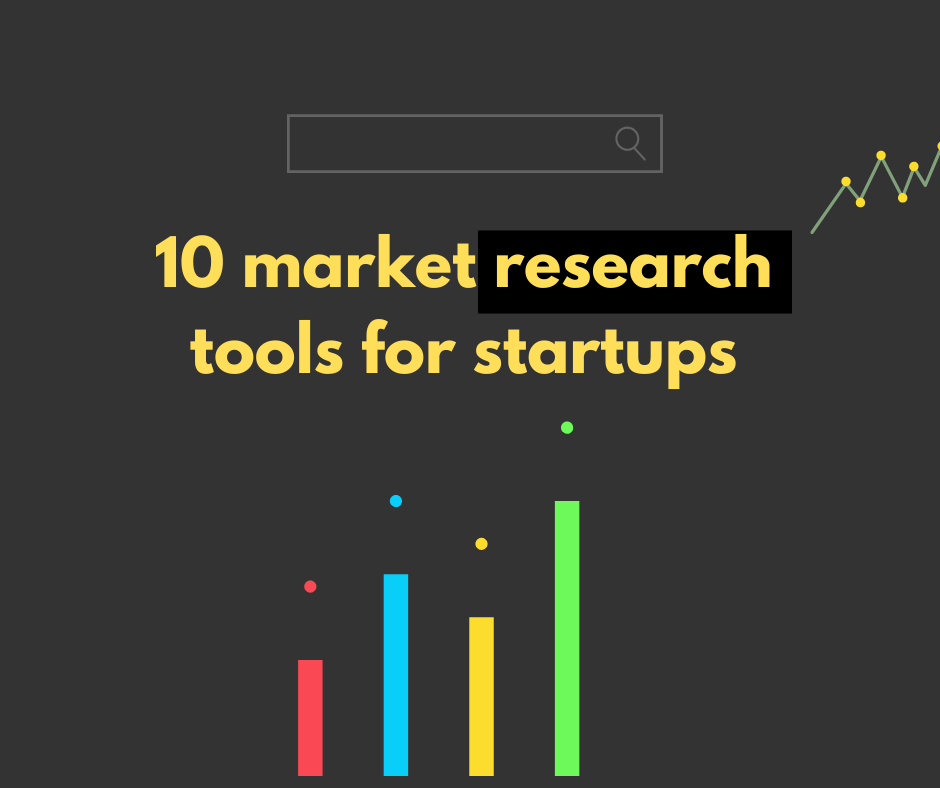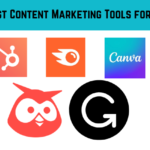Starting a business can feel like stepping into uncharted territory. You’re brimming with ideas, but you’re also navigating a world full of uncertainties. That’s where market research becomes your compass. It helps you uncover valuable insights about your audience, industry trends, and competitors, giving you the tools to make smarter decisions right from the start.
Why is Market Research So Important for Startups?
Imagine trying to sell a product or service without really knowing who your audience is or what they need. It’s like throwing darts in the dark—you might hit the target, but it’s mostly guesswork. Market research removes the guesswork by giving you the information you need to build a business strategy that resonates with your target audience.
For startups, where resources are often limited, market research becomes even more critical. It’s not just about understanding your market; it’s about ensuring every dollar, hour, and resource you spend is directed toward meaningful outcomes. Whether it’s deciding on a product design, identifying the right price point, or figuring out the best marketing channel, market research provides the clarity you need to stay on track.
Breaking Down Market Research
Market research isn’t a one-size-fits-all solution. It’s an umbrella term that encompasses various methods and tools designed to answer specific business questions. As a startup founder, it’s helpful to think of market research as two core activities:
- Understanding Your Audience
Who are your potential customers? What challenges are they facing, and how can your product or service solve them? Knowing your audience means you can speak their language, meet their needs, and offer solutions they’re willing to pay for. - Analyzing the Market Landscape
What does the competition look like? What trends are shaping your industry? How saturated is your market, and where do opportunities exist? This information helps you position your business effectively and avoid pitfalls others may have encountered.
What Can Startups Achieve with Market Research?
With the right market research, startups can:
- Spot Opportunities Early
Market research helps you identify gaps in the market where your business can stand out. It might reveal an underserved customer base or a growing trend you can tap into before others catch on. - Tailor Products and Services
By understanding your audience’s preferences and pain points, you can create offerings that truly meet their needs. This minimizes the risk of launching something that misses the mark. - Save Time and Money
When your strategy is informed by research, you’re less likely to waste resources on campaigns or products that don’t deliver results. - Build a Stronger Brand
Market research helps you understand how people perceive your business, allowing you to fine-tune your messaging and create a brand that connects with your audience.
When Should Startups Conduct Market Research?
It’s never too early—or too late—to start market research. Ideally, it begins before you launch, giving you a clear picture of the road ahead. However, ongoing research is just as important. Markets evolve, customer preferences shift, and new competitors emerge, making it essential to stay informed.
Types of Market Research Tools
When it comes to running a startup, having the right tools in your arsenal can make all the difference. Market research tools help you dig deeper into your audience, competitors, and overall market landscape, providing insights that guide smarter decisions. The good news? There’s a tool for almost every aspect of market research. To make things easier, let’s break them down into categories based on their function.
1. Survey Tools
Surveys are one of the most direct ways to gather insights from your target audience. These tools help you create questionnaires that can capture opinions, preferences, and pain points straight from the people who matter most: your potential customers.
- What They Do:
Survey tools are designed to collect and analyze responses efficiently. Whether you want feedback on a new product idea or insight into customer satisfaction, these tools simplify the process and provide real-time data. - Popular Options:
- Google Forms: A free, user-friendly tool for creating simple surveys.
- Typeform: Known for its clean, conversational design that keeps respondents engaged.
- SurveyMonkey: Offers advanced features like templates, analytics, and integrations.
- Why Startups Need Them:
Surveys are essential for validating ideas before launching, saving you from investing in something that may not resonate with your audience.
2. Competitor Analysis Tools
If you want to stand out, you need to know what your competition is up to. Competitor analysis tools help you understand their strengths, weaknesses, and strategies so you can carve out your own niche.
- What They Do:
These tools analyze your competitors’ digital presence, from keywords they rank for to their website traffic and social media performance. - Popular Options:
- SEMrush: Tracks your competitors’ keywords, backlinks, and overall search engine visibility.
- SimilarWeb: Provides insights into traffic sources, audience demographics, and industry benchmarks.
- SpyFu: Focuses on paid advertising and organic keyword analysis.
- Why Startups Need Them:
By studying your competitors, you can avoid their mistakes, capitalize on their weaknesses, and refine your strategies to stay ahead.
3. Customer Behavior Tools
Understanding how customers interact with your website or app is crucial for optimizing their experience. Customer behavior tools track clicks, scrolls, and other activities, giving you a detailed view of how people navigate your digital platforms.
- What They Do:
These tools provide heatmaps, session recordings, and analytics to show which parts of your site are working and where improvements are needed. - Popular Options:
- Google Analytics: A free tool that tracks website traffic, user demographics, and behavior patterns.
- Hotjar: Creates heatmaps and session recordings to visualize user interaction.
- Crazy Egg: Focuses on click patterns and A/B testing for website optimization.
- Why Startups Need Them:
Improving user experience can significantly impact conversions, ensuring visitors stick around and take the desired actions.
4. Industry Insight Platforms
These tools offer a bird’s-eye view of your industry, helping you understand trends, market size, and customer segments. They’re particularly useful when you’re entering a new or niche market.
- What They Do:
Industry insight platforms compile data from various sources, providing comprehensive reports and statistics about your market. - Popular Options:
- Statista: Offers data on virtually every industry, with visualizations that are easy to interpret.
- IBISWorld: Focuses on industry reports that include competitive analysis and growth projections.
- Pew Research Center: Great for social trends and demographic data.
- Why Startups Need Them:
When pitching to investors or planning a go-to-market strategy, having solid industry data helps you make informed, credible decisions.
5. Social Listening Tools
Your audience is talking online—whether it’s about your brand, your competitors, or industry trends. Social listening tools help you tune in to these conversations, giving you insights into customer sentiment and emerging topics.
- What They Do:
These tools track mentions, hashtags, and keywords across social media and other platforms. They help you understand what’s being said about your brand and industry. - Popular Options:
- Hootsuite: Offers basic social listening features alongside content scheduling.
- Brandwatch: Provides in-depth sentiment analysis and trend monitoring.
- Sprout Social: Combines listening features with robust reporting tools.
- Why Startups Need Them:
Social listening helps you engage with your audience in real time and stay ahead of trends that could impact your business.
6. Data Visualization Tools
Raw data can be overwhelming, but data visualization tools turn it into easy-to-understand charts and graphs. These tools are essential for presenting findings to stakeholders or making data-driven decisions.
- What They Do:
They take complex datasets and present them visually, making patterns and insights more apparent. - Popular Options:
- Tableau: Ideal for creating interactive dashboards and visualizations.
- Looker: Focuses on real-time analytics and business intelligence.
- Microsoft Power BI: A cost-effective option for startups with powerful visualization capabilities.
- Why Startups Need Them:
Clear visuals make it easier to communicate research findings and get buy-in from investors or team members.
Top 10 Market Research Tools for Startups
Choosing the right market research tools can feel like an uphill climb, especially when your startup is juggling a tight budget and limited time. The good news? There’s a tool for nearly every need, whether you’re collecting customer feedback, analyzing competitors, or tracking industry trends. Here’s a breakdown of the top 10 market research tools that every startup should consider.
1. Google Forms
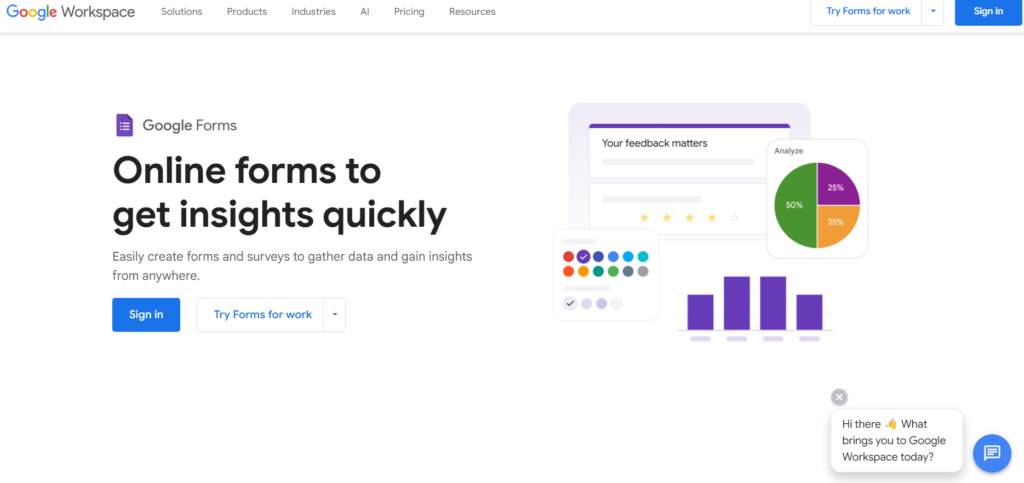
- Why It’s Useful: Google Forms is a free and easy-to-use tool for creating surveys. Whether you’re validating a business idea or gathering customer feedback, it allows you to quickly reach your audience and analyze their responses.
- Key Features:
- Unlimited surveys and responses
- Simple integration with Google Sheets for data analysis
- Customizable templates
- Best For: Startups needing a straightforward way to gather insights without spending a dime.
2. SurveyMonkey

- Why It’s Useful: For startups that need more advanced survey options, SurveyMonkey offers features like skip logic, survey templates, and robust analytics. It’s perfect for understanding customer satisfaction or conducting market validation.
- Key Features:
- Advanced survey customization
- Real-time results and reporting
- Pre-built questions designed by market research experts
- Best For: Startups looking for a professional-grade survey tool with built-in analytics.
3. SEMrush

- Why It’s Useful: SEMrush is a powerhouse for competitor analysis and keyword research. It helps startups uncover how competitors rank, their backlink strategies, and which keywords they’re targeting to drive traffic.
- Key Features:
- Keyword and backlink analysis
- Organic and paid search data
- Competitive insights across multiple platforms
- Best For: Startups focused on improving their online visibility and outpacing competitors.
4. SimilarWeb
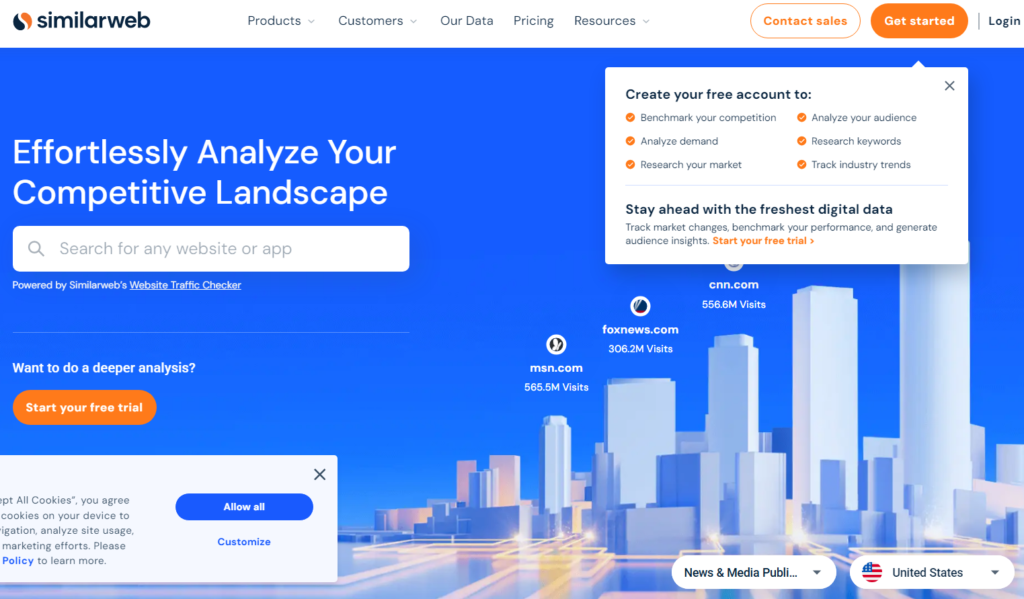
- Why It’s Useful: If you want a clearer picture of your competitors’ web traffic and audience behavior, SimilarWeb is the go-to tool. It provides insights into traffic sources, audience demographics, and top-performing content.
- Key Features:
- Website traffic breakdowns
- Engagement metrics like bounce rates and session durations
- Audience interest analysis
- Best For: Startups aiming to benchmark their performance against competitors.
5. Google Analytics
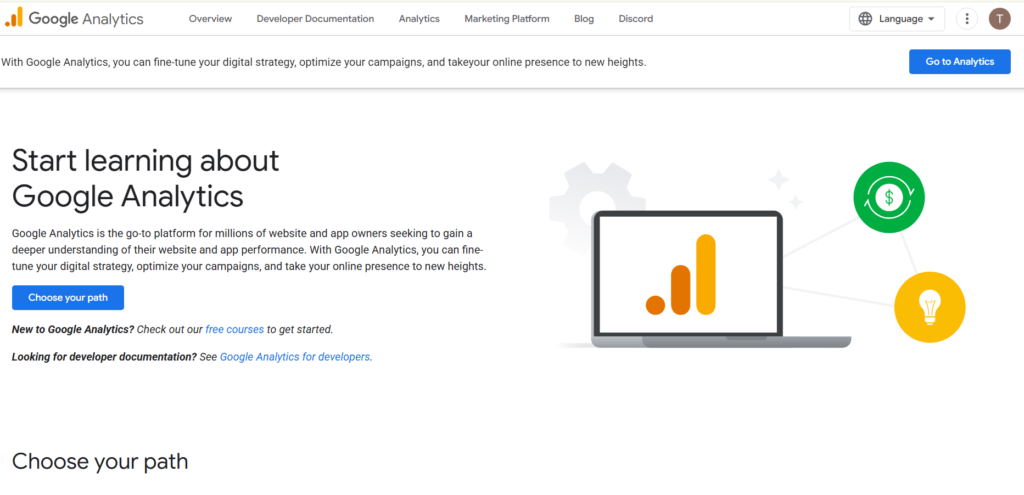
- Why It’s Useful: Google Analytics is a free tool that provides detailed insights into your website’s performance. It tracks user behavior, demographic data, and traffic sources, helping startups refine their digital strategy.
- Key Features:
- Real-time website traffic data
- Audience segmentation
- Customizable dashboards and reports
- Best For: Startups seeking actionable insights about their website’s performance without incurring costs.
6. Hotjar

- Why It’s Useful: Hotjar helps startups understand how users interact with their website through heatmaps, session recordings, and feedback polls. This can highlight friction points in the customer journey and areas for improvement.
- Key Features:
- Heatmaps showing where users click and scroll
- Session recordings for detailed user behavior
- On-site feedback tools
- Best For: Startups focused on improving user experience and boosting conversions.
7. Typeform

- Why It’s Useful: Typeform revolutionizes surveys with its conversational approach, making it more engaging for respondents. This increases response rates and provides startups with valuable insights.
- Key Features:
- Interactive and mobile-friendly survey designs
- Conditional logic for personalized questions
- Real-time analytics and integration with CRM tools
- Best For: Startups needing to collect high-quality feedback in a visually appealing way.
8. Statista

- Why It’s Useful: For startups looking to understand broader industry trends, Statista offers an extensive database of statistics and reports across industries. It’s especially valuable for startups entering niche markets.
- Key Features:
- Comprehensive data and infographics
- Industry-specific insights
- Exportable charts and graphs for presentations
- Best For: Startups conducting industry research or preparing for investor pitches.
9. Tableau

- Why It’s Useful: Tableau is a data visualization tool that transforms complex datasets into clear, interactive charts and dashboards. It’s perfect for startups that need to present their research findings to stakeholders.
- Key Features:
- Intuitive drag-and-drop interface
- Integration with multiple data sources
- Interactive dashboards for in-depth analysis
- Best For: Startups needing to showcase research results in a visually compelling way.
10. Ubersuggest

- Why It’s Useful: Ubersuggest is a budget-friendly tool that provides SEO insights, including keyword trends, competitor analysis, and content suggestions. It’s an excellent option for startups building their online presence.
- Key Features:
- Keyword volume and difficulty metrics
- Competitor traffic insights
- Backlink data for SEO optimization
- Best For: Startups just starting their digital marketing journey.
How to Choose the Right Market Research Tool
Selecting the right market research tool for your startup isn’t just about picking the most popular option or the one with the fanciest features. It’s about finding a tool that aligns with your business goals, fits your budget, and simplifies the decision-making process. With so many tools available, it’s easy to feel overwhelmed. This section will help you break down the selection process step by step so you can make an informed choice.
Step 1: Identify Your Objectives
Before diving into the sea of options, take a moment to clarify what you’re trying to achieve. Are you looking to understand your customers better? Analyze your competitors? Track industry trends? Each objective may require a different type of tool.
- Customer Insights: If you want to learn more about your target audience’s preferences, a survey tool like Google Forms or Typeform might be your best bet.
- Competitor Analysis: Tools like SEMrush or SimilarWeb can help you understand what your competitors are doing and how to position yourself in the market.
- Website Performance: For startups focused on improving their website’s user experience, Hotjar or Google Analytics will provide actionable insights.
Pro Tip: Write down your goals in a prioritized list. This will help you focus on tools that directly address your most pressing needs.
Step 2: Evaluate Features That Matter Most
Not all tools are created equal, and what works for one business might not work for yours. Once you’ve outlined your objectives, start evaluating tools based on features that align with those goals.
- Ease of Use: As a startup, time is a valuable resource. Choose tools with intuitive interfaces that don’t require extensive training.
- Scalability: If you anticipate growth, look for tools that can evolve with your business. This might mean opting for a tool with tiered pricing plans or advanced features you can unlock later.
- Customizability: Tools that allow you to tailor surveys, dashboards, or reports to your specific needs often provide more value.
- Integration: Does the tool integrate with other software you’re already using, such as a CRM or project management system? Seamless integration saves time and reduces manual work.
Example: If you’re using HubSpot as your CRM, selecting a market research tool that syncs with it can streamline your workflows.
Step 3: Balance Budget and Value
Startups often operate with tight budgets, so it’s important to choose a tool that delivers the most value for your money. However, “value” doesn’t always mean the cheapest option.
- Free Tools: If you’re just starting out, free tools like Google Forms, Google Analytics, or Ubersuggest can provide plenty of insights without stretching your budget.
- Affordable Plans: Many premium tools offer entry-level pricing tiers designed for small businesses. For instance, SEMrush and SurveyMonkey have affordable plans that provide access to essential features.
- Trial Periods: Before committing to a paid plan, take advantage of free trials to test the tool and see if it meets your needs.
Pro Tip: Avoid overcommitting to tools with features you don’t yet need. Start small and upgrade as your requirements grow.
Step 4: Read Reviews and Case Studies
Hearing from other users can provide valuable insights into how a tool performs in real-world scenarios. Look for reviews from businesses similar to yours and see how they’ve used the tool to achieve their goals.
- Online Reviews: Websites like G2 and Capterra offer detailed reviews and side-by-side comparisons of popular tools.
- Case Studies: Many tools publish case studies highlighting how their platform helped other businesses. These can give you a clearer picture of what to expect.
- Community Recommendations: Join online communities or forums for startups to ask peers about their experiences with specific tools.
Step 5: Test for Compatibility with Your Team
A tool is only as good as its usability for your team. Before finalizing your choice, consider how well the tool fits into your team’s workflow.
- Collaborative Features: Does the tool allow multiple team members to collaborate? This can be particularly important for startups where responsibilities overlap.
- Learning Curve: Choose a tool with robust customer support, tutorials, and resources to get your team up to speed quickly.
- Automation Capabilities: Tools that automate repetitive tasks—like generating reports or analyzing data—can save your team time and effort.
Example: Hotjar provides a user-friendly dashboard, but it also offers training resources to help teams make the most of its features.
Step 6: Consider Long-Term Needs
Your startup’s needs today might look very different a year from now. Choose tools that not only address your current challenges but also offer room to grow.
- Advanced Features: Look for tools with additional capabilities, like predictive analytics or AI-powered insights, that you can explore later.
- Support and Updates: A tool backed by regular updates and strong customer support is more likely to remain valuable over time.
- Vendor Stability: Opt for tools from well-established companies to ensure long-term reliability.
Benefits of Using Market Research Tools for Startups
In the early stages of building a startup, every decision counts. Whether you’re launching a product, crafting a marketing strategy, or identifying your ideal customer, having accurate data can mean the difference between success and wasted resources. This is where market research tools come in. These tools provide startups with the insights they need to make smarter, more informed decisions. Let’s explore the key benefits of incorporating market research tools into your business strategy.
1. Data-Driven Decision Making
Startups often operate in uncertain environments where decisions need to be both quick and calculated. Market research tools help take the guesswork out of decision-making by offering reliable data on customer preferences, industry trends, and competitor activity.
- How It Helps:
- Identify which products or services resonate most with your target audience.
- Test new ideas before launching, saving time and money.
- Refine marketing campaigns based on actual data rather than assumptions.
Example: Before introducing a new feature, use survey tools like Typeform to gather direct feedback from potential users. This ensures you’re focusing on features that matter most to your audience.
2. Better Understanding of Your Target Audience
A deep understanding of your customers is the foundation of any successful business. Market research tools allow you to analyze your audience’s demographics, behavior, and preferences.
- How It Helps:
- Build detailed customer personas that guide your product development and marketing strategies.
- Uncover hidden needs or pain points that your competitors might be overlooking.
- Segment your audience for more personalized and effective communication.
Example: Tools like Google Analytics and Mixpanel can reveal where your website visitors come from, how they interact with your site, and what motivates them to convert.
3. Competitive Edge
Startups often face tough competition from established players in the industry. Market research tools give you the insights needed to position your business effectively and stay ahead of the curve.
- How It Helps:
- Analyze your competitors’ strengths and weaknesses to identify gaps in the market.
- Monitor their digital strategies, such as keywords they rank for or the type of content they produce.
- Adjust your pricing, messaging, or features based on competitor benchmarks.
Example: SEMrush can help you track your competitors’ keyword performance and online advertising efforts, giving you ideas to refine your own strategy.
4. Optimized Marketing Strategies
Your marketing efforts should be based on data, not guesswork. Market research tools provide insights that help you craft campaigns tailored to your audience, resulting in better engagement and ROI.
- How It Helps:
- Identify the most effective channels for reaching your target audience (e.g., social media, email, or search engines).
- Test and tweak your messaging to find what resonates best with your audience.
- Measure campaign performance in real-time and adjust your strategy as needed.
Example: Hotjar’s heatmaps can show which parts of your landing page capture the most attention, helping you optimize design and messaging to boost conversions.
5. Reduced Risk and Cost Efficiency
Startups often operate on tight budgets, making it critical to allocate resources wisely. Market research tools help minimize risks by providing the insights needed to avoid costly mistakes.
- How It Helps:
- Test product ideas and marketing campaigns before launching them to a wider audience.
- Avoid investing in features or strategies that don’t align with customer needs.
- Identify early signs of market shifts, allowing you to pivot quickly.
Example: Conducting a pre-launch survey using SurveyMonkey can reveal whether your pricing strategy aligns with customer expectations, saving you from potential backlash.
6. Improved Product Development
Creating a product that stands out in the market requires a thorough understanding of what your audience wants. Market research tools provide the insights needed to shape your product development process.
- How It Helps:
- Validate ideas before investing significant time or money.
- Prioritize features based on customer demand.
- Gather feedback throughout the development cycle to ensure your product meets expectations.
Example: Using tools like Typeform for beta testing feedback allows you to refine your product before the official launch, ensuring a smoother rollout.
7. Stronger Investor Pitches
Investors want to see that you understand your market inside and out. Data gathered from market research tools can help you build a stronger, more credible pitch.
- How It Helps:
- Back up your claims with hard data about market size, trends, and customer preferences.
- Demonstrate how your business differentiates itself from competitors.
- Show evidence of demand for your product or service.
Example: Statista provides reliable data on industry trends and market growth, which can add weight to your pitch deck.
8. Real-Time Insights for Quick Adaptation
Startups must be agile to survive in fast-changing markets. Market research tools equipped with real-time analytics keep you updated on trends and audience behavior, allowing you to adapt quickly.
- How It Helps:
- Track the effectiveness of your campaigns or strategies as they unfold.
- Spot emerging trends that could shape your product offerings.
- React to changes in customer preferences before your competitors.
Example: Monitoring traffic spikes with Google Analytics after launching a new ad campaign helps you measure its immediate impact and make adjustments if needed.
Frequently Asked Questions
- Which market research tool is best for startups on a tight budget?
Many startups find Google Forms and Zoho Survey to be cost-effective and efficient. - How can market research tools help startups grow?
They provide insights into customer needs, industry trends, and competitor strategies, enabling startups to make informed decisions. - What should I consider when choosing a market research tool?
Focus on your objectives, ease of use, scalability, and budget to find the best fit. - Are there free options for competitor analysis?
Yes, tools like Ubersuggest offer free features that can help startups analyze basic competitor data. - How often should I update my market research data?
Regular updates are crucial—monthly or quarterly reviews are recommended to stay aligned with market changes.
Conclusion
Market research tools are invaluable for startups aiming to make data-driven decisions. By selecting tools that align with your goals and using them effectively, you can uncover insights that pave the way for sustainable growth. Start exploring your options today and set your startup on the path to success.

